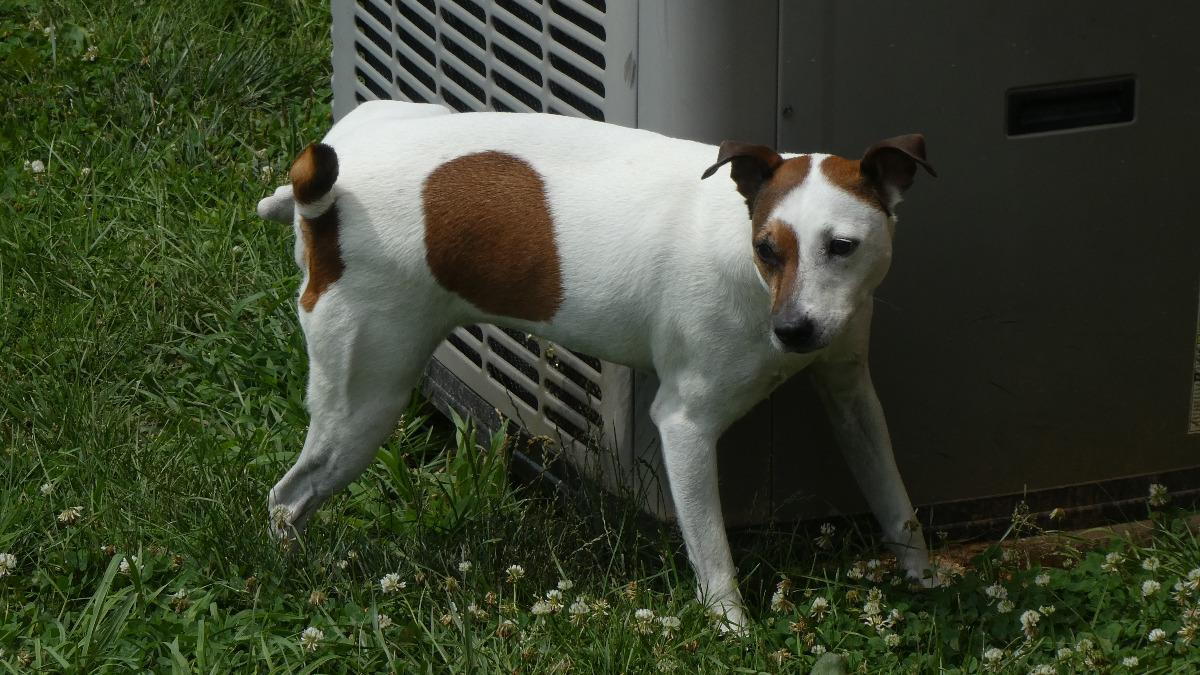Why Does my Dog Pee When Excited or Frightened?

- posted: Apr. 10, 2021
Why does my dog pee when excited or frightened?
Dogs, especially puppies but sometimes adults, too, will often urinate when excited or frightened. But why does it happen, and what can be done to treat it?
Both males and females exhibit this behavior. Submissive urination is an uncontrollable physical response and it often occurs to signal another dog (or person) that the dog is not a threat to others. Excitement urination is also an innate uncontrollable physical response to stimulation and is more common in puppies. Most pups will outgrow excitement/submissive urination.
First, there is a slight distinction between submissive (fearful) urination and excitement urination. Submissive urination often occurs if a puppy or adult dog is frightened or unsure of a situation. Some dogs urinate if you reach over top of them to pet them or if someone scolds them, speaks in a loud tone or makes a loud noise. This type of urination is also accompanied by other submissive body postures such as crouching, flattened ears, tucked tail or even rolling over on their back to expose the belly. These are all signs designed to say, “I’m not a threat, please don’t hurt me!”
Excitement urination tends to occur more often in young puppies who simply lose control of their bladder when excited. It commonly occurs when someone goes to greet the puppy by reaching for them or when using a loud or high-pitched voice. These puppies do not exhibit submissive signs but rather will be happy, wagging their tails and they may jump up or run around.
It is important to rule out medical causes of excitement or submissive urination such as urinary incontinence, bladder infection, or bladder dysfunction (ectopic ureters, neurologic problems). Other reasons may include incomplete house training, urine marking or separation anxiety.
To reduce submissive/excitement urination, DO NOT scold or punish the dog while he is urinating as this may actually worsen the behavior. Never use rough behavior and do not rub the dog’s nose in the urine. DO NOT stare at, lean over, or acknowledge the dog while she is urinating. It also helps to use a calm voice, no baby talk or high-pitched speech and don’t reach over the dog’s head. Ask guests (and remind yourself!) not to greet or make a fuss over the dog when he first approaches, giving him a chance to calm down or check out the person before eye contact or physical contact is initiated by the person.
DO clean any soiled areas with a urine odor eliminator. DO approach the dog from the side, reach under the chin to pet her instead of over her head and crouch down to the dog’s level instead of towering over her. Do your best to ignore the dog if he is urinating. DO build confidence by working with your dog teaching obedience training using treats and positive reinforcement rather than punishment. DO keep your puppy on a schedule for house training, feeding and providing water.
Most puppies will outgrow excitement urination as they get older and have better control of their bladders. Submissive urination may continue into adulthood, but by following the above suggestions, you may be able to make your dog more comfortable in stressful situations and limit submissive urination episodes.
This blog brought to you by the Patton Veterinary Hospital serving Red Lion, York and the surrounding communities.
Location
Patton Veterinary Hospital
425 E Broadway
Red Lion, PA 17356
